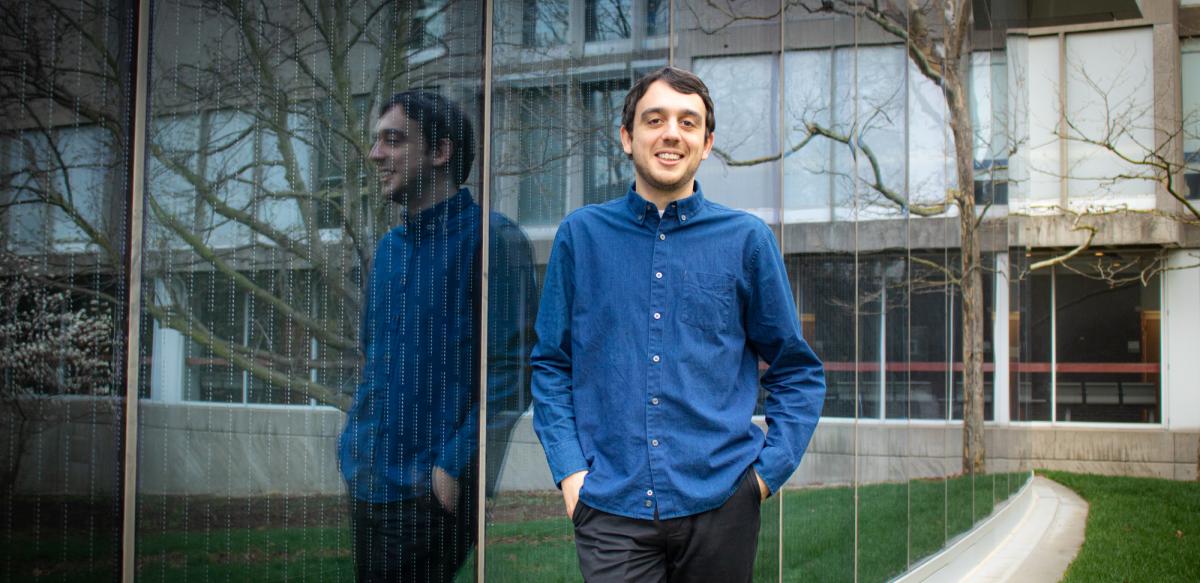Jonathan Khosravani

Program
Why did you choose to complete your graduate studies in your program at the University of Guelph?
I'm originally from London, UK and am currently a second-year PhD student in Political Science at the University of Guelph. I chose the university for many different reasons but some of the most salient considerations for me before beginning my studies was UofG's deep commitment to teaching and research, the important and fascinating work of the scholars, like my advisor Professor Craig Johnson, and the opportunity to research my interests with robust support from the department and college. Overall, UofG offered not only a competitive package but also the space, skills, expertise and support necessary for me to successfully study my passion of ecological politics and environmental governance which other universities in Canada, the US, and the UK simply could not.
A bit about your path...
I've experienced a winding path with quite a few unexpected twists and turns to end up doing a PhD in Political Science. I first decided to pursue a doctorate after completing an MA in International Relations at the University of Westminster in London, as it introduced me to ground-breaking concepts and political theories. My time at Westminster reinvigorated my passion for learning after spending several years as a market research analyst, so I decided to prepare for a PhD by joining the Transdisciplinary Studies program at the New Centre for Research & Practice, a cutting-edge, online higher education institution offering graduate-level certificates. This program helped broaden my academic background by allowing me to explore philosophy, history, politics, and literature, which has proved invaluable for my current doctoral studies. I then successfully applied to UofG to study environmental governance, climate change, and ecological politics with Professor Craig Johnson as my advisor.
A bit about the work you are doing here...
My current research focuses on the connections between coal mining, waste and the so-called 'just energy transition' away from fossil fuels in Canada but also globally. This project aims to explore how the proliferating narratives of 'eco-justice', 'decarbonisation', and 'just transitions' are potentially impacting coal mining communities and their understanding waste. What drew me to this area of study is that environmental degradation and climate change seem to be forcing many societies to move away from fossil fuels, like coal, and to transition into 'cleaner' energy sources, which produce less waste like carbon dioxide, but this in turn will have many negative impacts upon communities built on coal extraction. So important questions emerge about what (or who) is discounted as waste in this emerging, fossil fuel-free energy regime.
How do you think your research (or the work you are doing at U of G) can potentially improve life?
My own research seeks to explore discourses and practices of waste and the 'just energy transitions' and its potential impact on coal mining communities in the country as calls for 'decarbonisation' increases with climate change becoming more intense. Therefore a serious scholarly exploration of this topic aims to understand the dynamics at play within these communities to not only produce new knowledge but to also potentially help these communities navigate the development of a supposedly 'just' energy transition.
Briefly describe what it is like to be a graduate student at UofG
Outside of being a PhD student I enjoy cycling, philosophy, and spending time with my partner as we continue to explore Ontario and Canada.